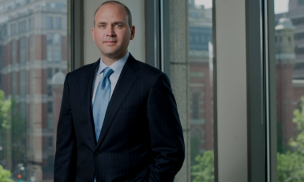Britain’s newly installed Justice Secretary has hit the ground running.
Michael Gove has started a row with some of the most powerful lawyers in Britain after requesting that they “contribute much more” to make sure justice was freely available.
Britain’s legal aid cutbacks have seen lawyers incensed and claims that justice is being denied to many worthy recipients and the troubled legal system has been split by ructions over the cutbacks.
But his proposal to improve a “two-nation” justice system prompted complaints about the impact of legal aid cuts imposed by his predecessor, Chris Grayling, according to a Guardian report.
In his first significant speech since taking up the post, Gove told the business thinktank the Legatum Institute that “those who have benefited financially from our legal culture need to invest in its roots” and argued that “more could – and should – be done by the most successful in the legal profession to help protect access to justice for all”.
The minister did not spell out how such contributions would be extracted – whether in terms of cash payment or pro bono work – but indicatedlegislation could be involved.
“Many of our leading law firms have committed to give 25 hours pro bono on average per fee earner each year. That is welcome, but much more needs to be done,” he said.
Leading Lawyers Take Exception
Several leading lawyers and large firms reacted with surprise, pointing out that the legal aid budget was cut under the coalition. They also said their expertise was not in criminal law or family courts where the lack of adequate legal representation was most acute. Many stressed they already donated a considerable amount of time to pro bono work.
Nick Armstrong, a barrister at Matrix Chambers, one of the most successful sets in London, said he was due to do 25 hours of pro bono work just this week.
“The reality is that legal aid practitioners are finding it extremely difficult to do it,” he said. “They are reviewing and cutting their pro bono work because their profit margins have now gone.”
Source: The Guardian





